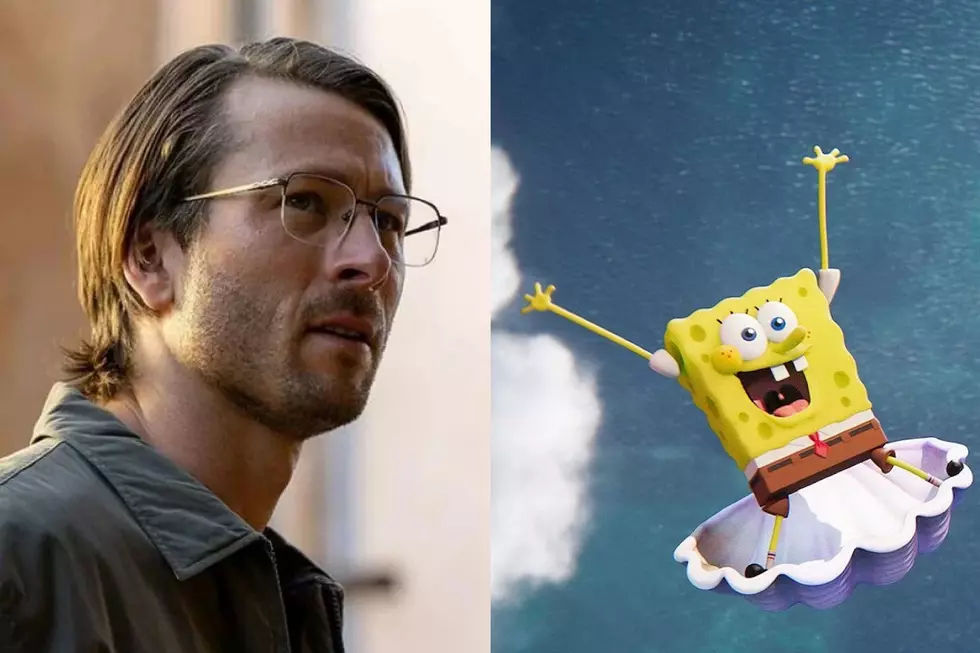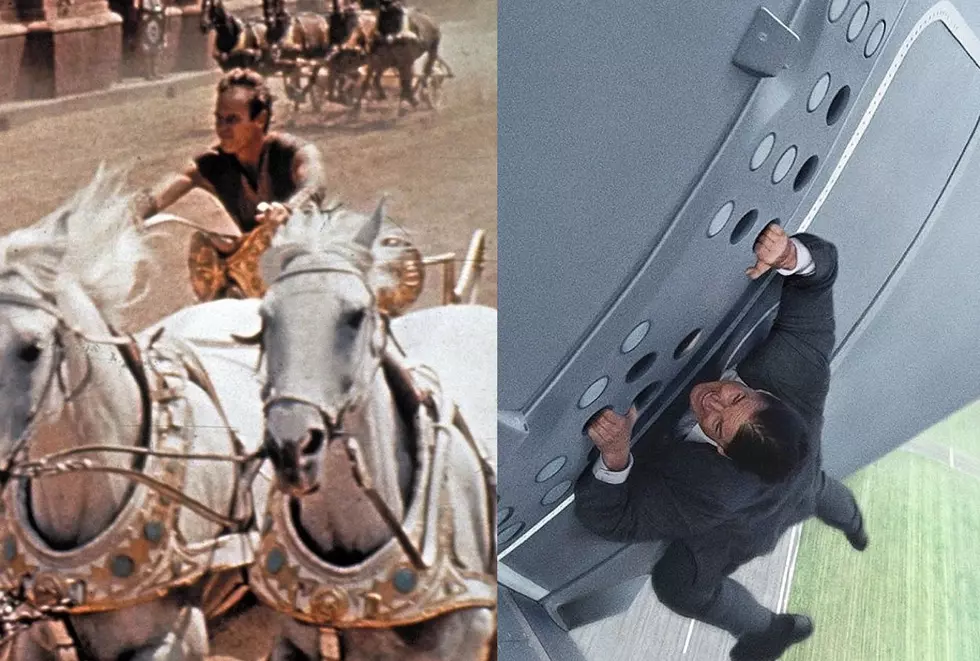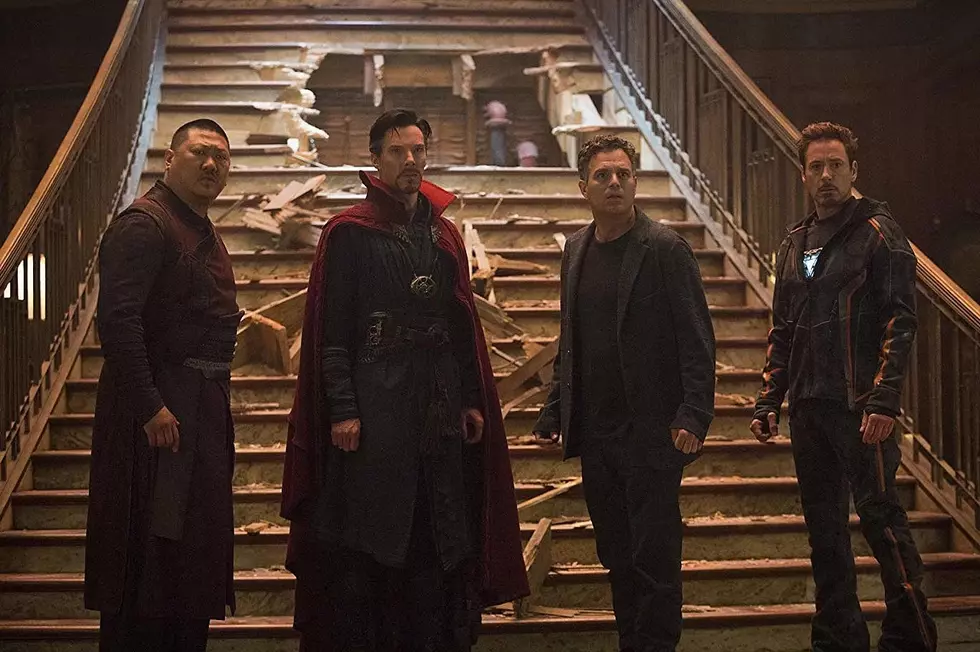
‘Samsara’ Review
A little over 20 years ago Godfrey Reggio, Ron Fricke and Philip Glass collaborated on what I recently decided was my 5th favorite movie of all time, 'Koyaanisqatsi.' While they didn't invent the dizzying non-narrative art film they upped the game with its dazzling use of high-tech lenses, filming technique and access to photogenic locations both natural and man-made. They revolutionized cinema, with immediate copycats in the world of advertising, and the film excites audiences looking for an exercise in "pure cinema" to this day.
Well, for those of you that were fans, you can relax. This newest production, 'Samsara,' five years in the making, is really quite terrific. There's a primacy to 'Koyaanisqatsi' that lends it a profound aura, but 'Samsara' is such a spectacle that one can't help but cheer it along for showing such determination.
'Samsara' is 95 minutes of 70 mm footage (projected on state of the art DCP) from 25 different countries. You want the ancient city of Petra? You got the ancient city of Petra. The Vatican? Sure. Jerusalem's Wailing Wall? Check. Brazilian train stations ? Yep. Korean prisons where they do those loony dances? Gotcha. Minarets of Istanbul juxtaposed with modern bridges. You know it. A fetus in-utero with a smash cut to a body preserved in volcanic ash? We got all that and more.
It quickly becomes an overload of riches and, quite frankly, some viewers may just shut down. How many beautiful Javanese temples can you take until it is just too much to fathom? Wisely, Fricke mixes up his rhythm. As in 'Koyaanisqatsi,' there are occasional (and eerie) close-ups of people and their melancholy stares. There's also a break for a performance artist to turns himself from an office worker into a mummified corpse with clay and some red and black ink.
That part is a little aggressive, as is the trip inside the modern food industry. Sped-up factory footage is par for the course in these types of movies, but even the staunchest of omnivores may gasp at the cows, pigs and chickens being led to slaughter. This sequence has a punchline: fat Americans chomping fast food burgers, one of the rare "on the nose" moments in 'Samsara,' but for a movie with no dialogue you have to forgive it its dabbling in didacticism.
This leads to the question, what is 'Samsara' about? Is it just 95 minutes of screensavers set to cool (but not as cool as Philip Glass) music? On a very real level, yes, that is a perfectly valid way to experience this film. Its surface pleasures are nothing to sneeze about - it is certainly the stuff that will get it talked about and inspire me to watch it again some day.
Underneath, of course, is no shortage of heavy sh*t, man. When you get on its wavelength, "chapters" begin to emerge from the onslaught of spectacle.
'Samsara' is a Sanskrit word for "continuous flow," represented by birth, life, death and rebirth. The Tibetan monks that bookend the film are shown creating a "wheel of life," an incredibly detailed artwork consisting of tiny colored bits of sand. After countless hours of painstaking work, there is a moment of acknowledgement, followed by a swift, destructive brush that mixes the components of the artwork into a dull, formless mess. (See Werner Herzog's 'The Wheel of Time' for more about this fascinating practice.)
There's no way to watch this and not think "wow." Same with images of the bullet factory juxtaposed with the disfigured soldier, the shacks of the poor overshadowed by gleaming skyscrapers or modern interior spaces shot in such a way that they resemble abstract paintings. Yeah, it comes dangerously close to saying "oooooh, deeeeep" at times, but when it is presented with this much artistry it's like, hey, if this isn't the time to get all spiritual, then when is?
'Samsara' is the best "head film" to come down the pike in quite some time and politely requests 95 minutes of your time to show you your world in a way you've never seen it before. See it at the local arts theater or when your college has its special screening. If you are single and you wear a turtleneck you are bound to score.
'Samsara' opens in select theaters on August 24th.
Jordan Hoffman was the movies editor at Hearst Digital’s UGO for four years and currently contributes to SlashFilm, MTV’s NextMovie and StarTrek.com. He’s made two marginally successful independent movies, is a member of the New York Film Critics Online and was named IFC’s Ultimate Film Fanatic of the NorthEast in 2004. Follow him on Twitter at @JHoffman6.
More From ScreenCrush









